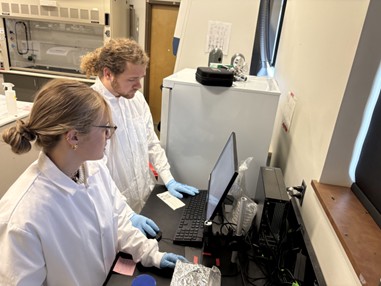Neuromapping in Space-related Altered Gravity Environments - Unraveling the Mysteries of Brain Adaptation
2024-2026 - Dr. Anja Kunze

As space missions to the Moon and Mars become more common, understanding how reduced gravity affects the brain is critical to protecting astronauts’ health. Astronauts often experience disorientation and neurological changes during and after spaceflight, but the underlying mechanisms at the cell level behind these effects remain unclear. One major gap in knowledge is how shifts in gravity influence neuroplasticity—the brain’s ability to adapt and reorganize—which is essential for cognitive and behavioral functions.
This NASA EPSCoR-sponsored study, led by a research team at Montana State University (MSU), investigates how mechanical force changes related to gravity affect brain cells. Specifically, the team examines how these forces influence the electrophysiological behavior in neuronal networks of cortical neurons. Using a novel lab platform developed at MSU, researchers model transitions into and out of space-related altered gravity by applying different scales of magnetic field gradients.
The platform allows for precise manipulation of magnetic and mechanical forces on brain cells. This enables the team to observe how neurons change function, structure, and signaling under conditions similar to space. The inclusion of magnetic nanoparticles also helps distinguish between mechanical, magnetic, and diamagnetic effects on cells.
Led by Dr. Anja Kunze, Associate Professor of Neuroengineering at MSU, the study aligns with NASA’s Human Research Program goals to reduce health risks such as Spaceflight Associated Neuro-ocular Syndrome (SANS). In addition to advancing space neuroscience, this project helps expand Montana’s scientific infrastructure and strengthens interdisciplinary collaboration in space health research.
